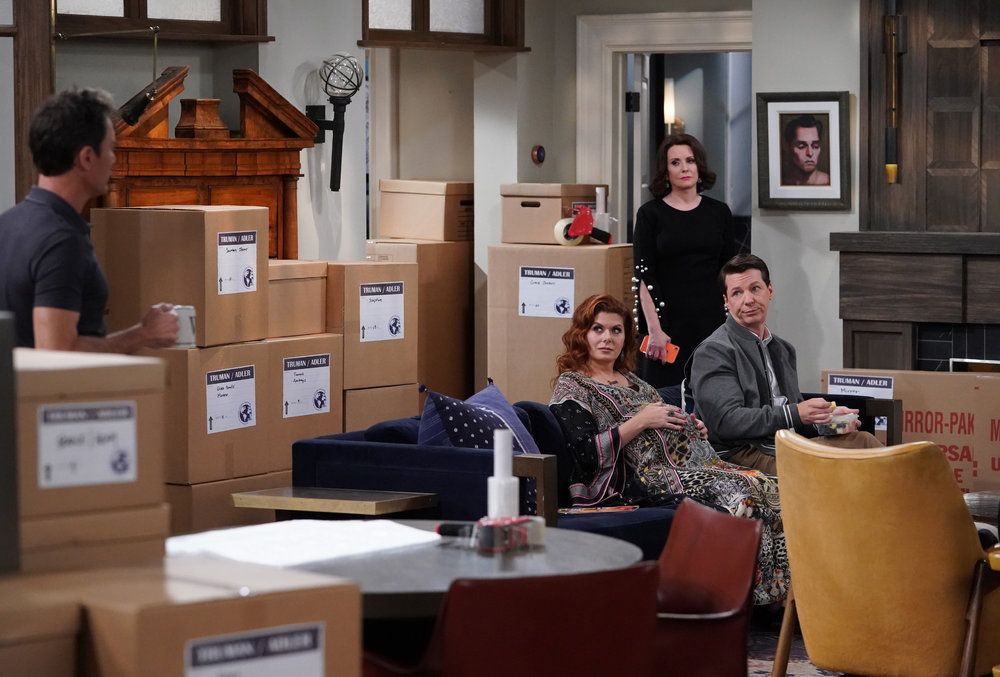“Will & Grace” – once a pioneering gem – is saying goodbye … again.
Its first series-finale was in 2006. People cheered and wept; Debra Messing took home a souvenir – the office door that had the name of her character, Grace Adler. (NBC later billed her for $220, she has said; she didn’t pay it.)
For the next decade, the actors were busy elsewhere. Messing and Eric McCormack each starred in a couple series, Sean Hayes became a producer (“Hollywood Game Night,” “History of Comedy,” more), Megan Mullally saw her husband, Nick Offerman, go from obscurity to fame.
Then they returned for three more years. The show has gone for so long that we might forget how revolutionary it was. Alphonso David, president of the Human Rights Campaign, put it in perspective:
“From the series premiere in 1998, when marriage equality did not exist, to this week’s series finale, which airs amidst the ongoing fight for all LGBTQ people, ‘Will & Grace’ has changed how LGBTQ people see themselves and their stories represented on TV,” David said in a statement.
Nowadays, we take it for granted that gay characters will have major roles – not just odd-sidekick bits – on many shows. In ‘98, this was new, as Warren Littlefield and others reminded us in his book, “Top of the Rock” (Doubleday, 2012).
“I had floated the idea for a similar show with Brandon Tartikoff (then NBC president) in the ‘80s … gay guy, straight girl, best friends,” Littlefield said.
Tartikoff gave a flat no; much later came the duo to write it: Max Mutchnick (gay) and David Kohan (straight) are friends and writing partners. As David Nevins, another NBC executive, puts it: “They said, ‘Okay, but we don’t believe you. We’ll write a great script, but you’ll never put it on the air.’”
Messing also had doubts: “I thought …, ‘This is really exciting, but is Middle America going to be okay with this? … Will GE (which owned NBC) be okay with it?’”
It would. When the pilot was screened, Littlefield said, Bob Wright (the former GE executive who was NBC’s CEO) “turned to me and, in a voice the whole room could hear, said, ‘That’s the best thing we’ve ever had our name on.”
It was good because Mutchnik and Kohan wrote clever lines for talented actors … but also because Jim Burrows – who had guided “Taxi,” “Cheers,” “Frasier” and more – was the director. “I don’t think the show would have lasted without Jimmy,” Hayes said in Littlefield’s book. “Max and David used to just write jokes and didn’t seem to care about the characters, until Jimmy came along.”
Soon, lots of people cared about these characters. “Will & Grace” was nominated six times for the best-comedy Emmy, winning once. It ended its eight-year run … then came back for three more years.
The show has often teetered toward a goofiness overload … especially with Karen (Mullally), Jack (Hayes) and some of the side characters. Viewers will notice that in the flawed-but-funny finale.
But Will and Grace remain solid, a gay/straight friendship that’s now common on TV and in life.
“Throughout its run,” David said in his statement, “’Will & Grace’ helped us educate and inform all segments of society about the vibrancy and validity of the LGBTQ people and culture.”
– “Will & Grace” finale, 9 p.m. Thursday (April 23), NBC; an overview follows at 9:30
